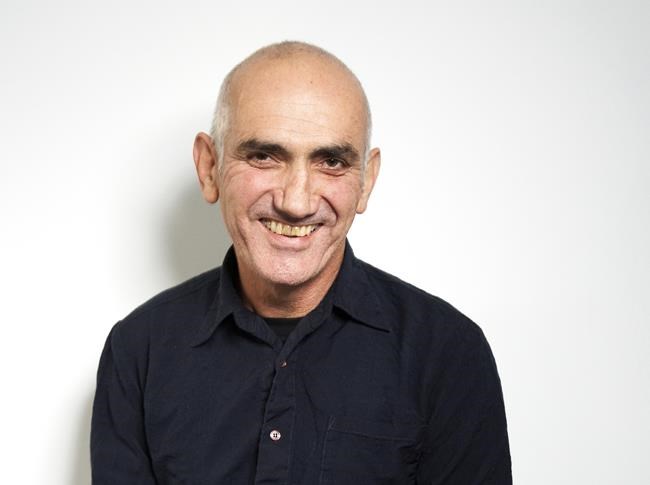The shamelessness of powerful men in Australia’s media industry knows no bounds

- by Admin
- June 11, 2024
Last week in Sydney, I attended a conference on volunteering and gave a speech. When questions were invited from the audience, a woman (most of the audience was female) raised her hand and was duly delivered the microphone.
She was perhaps in her 50s, African-Australian. She opened with a series of apologies. For her accent. For her English more generally. For her temerity in hogging the microphone. And then came her real question.
She was the founder and CEO of a volunteer organisation but tended (she explained, in her perfectly intelligible English) not to use the title CEO as it felt like she was giving herself airs, or that people would think she was grandstanding. Did I have any advice as to how she could feel more confident in her own skin?
As I listened to her, I felt like bursting into tears. And I didn’t fully understand why until later that day, when I first saw the footage of Peter Costello, former treasurer and long-serving chairman of the Nine Network, strolling through the Canberra Airport.
I couldn’t stop watching it. There’s Costello, sauntering down the escalator with a briefcase. His customary half-smile deepens slightly – tautens, perhaps — as reporter Liam Mendes, from The Australian, approaches and introduces himself. Mendes begins politely to ask questions about the ongoing scandal at Nine, in which the company appears to have managed to ignore for some time the open secret that its news director Darren Wick was harassing female staff. At the now-famous half-minute mark, Costello looms into the viewfinder of Mendes’s phone camera, and Mendes goes down. “You just assaulted me!” he protests.
A hooting, high-pitched laugh is heard, unmistakeable to anyone who has ever had a lively conversation with the former treasurer. And Costello keeps walking.
Much debate ensues about whether Costello pushed Mendes. The former insists “No.” The latter says it was definitely a push, and had the presence of mind to find some witnesses to back his account.
“I was just outside having a smoke,” says one bloke. “He gave you a real shunting.”
Most Australians, in a disputed account between a politician and a journo, would of course unhesitatingly go with the most trustworthy witness: the bystander having a ciggie.
But the jarring element regardless is Costello’s failure to stop and help Mendes, and – more centrally — his failure to recognise that the chairman of a company in crisis over its tolerance of poor behaviour in its executive leadership really cannot afford to behave like a d*ck.
This is a merit issue, plain and simple. Costello’s one job as leader of the Nine board is to exercise good judgement under pressure. When put under pressure — and not very much pressure at that, let’s face it — he behaved foolishly. End of story.
Consider the woman at the conference, too full of shame and self-doubt even to call herself by the correct title.
And now consider Costello — the chairman of a much bigger organisation — who even when he resigned on Monday could not bring himself to admit a single error. In his statement, he shook his fist at “the attacks of a commercial rival”, and insisted he was planning to go anyway. Not a skerrick of shame, or even humility.
Australia’s media landscape is rife with powerful men willing to turn a blind eye
The horrible truth is that in the Australian legacy media landscape, there are too many stories of senior men who forgive themselves their own lapses of judgement, or forgive each other’s because they’re “good blokes”, or — in the worst cases — go easy on each other because they fear a nuclear escalation.
Across this industry, there are precious few female editors, chief executives, news directors, and executive producers at the biggest commercial companies. But those who do hold those jobs know instinctively that they need to keep their noses rigorously clean. Because members of the boys club will rarely extend to them the benefit of the doubt they will so readily, sometimes unthinkingly, give each other.
What female news director, one wonders, would be welcome back at her job after a significant and eye-catching DUI conviction like Darren Wick was at Nine? We are all humans, and humans make mistakes, and hope to be forgiven for them. But a workplace manager whose problem with alcohol spills over into mistreatment of staff?
Any chief executive who turns a blind eye or fails to notice this pattern is not doing a good job. End of story. This is a merit issue.
The sorry tale of Ben Roberts-Smith, until recently the Seven Network’s Queensland general manager, is familiar to us all. Thanks to the defamation action he (surely we can all now agree) foolishly initiated against Nine and its reporters Chris Masters and Nick McKenzie, we all know much more than we needed to about prosthetic leg drinking vessels, pink lunch boxes full of secret USBs, and private detectives sent along to abortion clinics.
One wonders, indeed, at the shamelessness of a man so famous and surely aware of all this excruciating material, who nonetheless proceeds to sue for defamation.
One wonders, too, how the Seven Network ever thought it was a good idea to put this man — whose qualifications pre-appointment, let’s face it, largely involved being a good bloke and a good shot — in charge of its Queensland news operation?
Was this good judgement? And who is answerable for it?
Roberts-Smith’s appointment to the role was announced in 2015 by Seven’s then-CEO Tim Worner, who stepped down four years later after a transfixingly awful public battle with his former EA Amber Harrison, with whom he’d conducted an extramarital affair.
Now, extramarital affairs are no crime, workplaces are full of humans, and humans tend to behave humanly. But when a boss has an affair with an employee and gambles that the usual thing will happen — ie, that if and when the relationship goes pear-shaped, he will be able to move her sideways or otherwise get her out of the picture, a common tactic in media and politics alike — that’s a judgement call. That’s a risk management call.
That’s the failing: it’s a merit failure, not a moral one, and Worner in the end paid the price for it. But not before a solid attempt to tough it out.
Compare the pair
Seven, meanwhile, last year allotted significant resources and two primetime episodes of its flagship Spotlight program to interviewing accused rapist Bruce Lehrmann, and taking potshots at the reporting of Network Ten’s Lisa Wilkinson and News Corp’s Samantha Maiden, who in 2021 broke the story of Higgins’ allegations and won the Gold Walkley for her efforts.
Spotlight slimed both women and ridiculed their journalistic practice, running extensive audio of Wilkinson and her producer drinking wine in a hotel room with Higgins and her partner David Sharaz as they wargamed the story.
What’s intriguing about this program in retrospect, of course, is that producers Taylor Auerbach and Steve Jackson, as well as Spotlight’s executive producer Mark Llewellyn, knew while they were making it that their own journalistic practice made Lisa Wilkinson’s bottle of pinot gris look a bit … what’s the word? Oh yeah. Marginal.
As we now know thanks to Auerbach’s testimony to the Federal Court, Seven funded a golf trip to Tasmania for Lehrmann and his posse, not to mention extensive Sydney hospitality and a night of therapeutic attention from some ominously high-charging “Thai masseuses”.
All to induce Lehrmann to sign up for an exclusive interview.
“Mission finally accomplished,” Llewellyn texted Auerbach and Jackson at 10:14pm on Tuesday, March 14, 2023, having finally sealed the deal with the additional bait of a year’s free accommodation in Sydney (market value: $100,000).
“Brilliant work gents,” Jackson replied. “Brilliant exclusive. Well played.”
Yep, well played gents.
They then submitted the interview for a Walkley, and won a Scoop Of The Year nomination, only to lose it when the judging panel discovered the bit about the $100,000 inducement.
Hey Siri! Show me: “Shamelessness.”
In fairness, all three men no longer have their jobs with Seven; all three have since left the network. But not one of them has received a fraction of the hysterical attention paid over the last two years to Lisa Wilkinson.
Jackson’s departure from Seven, for example, was “reported” by the website TV Blackbox as follows:
“Award-winning producer Steve Jackson is venturing away from journalism after two decades to pursue a new opportunity.”
The news item was billed as an “Exclusive!” by Robert McKnight, who included in his news story the following paragraph:
“On a personal note, I’ve been working with ‘Jacko’ on Spotlight since I joined the program last June. His news sense is second to none and his sources are the envy of many.”
Great work, gents!
What’s the lesson here?
Get into strife as a female in this industry, and no matter how senior you are, you can expect to face instant, blistering scrutiny.
That should be a perfectly reasonable proposition. And would be, if senior dudes encountered anything like the same treatment.
But they don’t. And women who work hard, behave well and achieve objective success can’t automatically expect to prosper, either.
Loading
Jobs for the boys
Two weeks ago, for instance, when News Corp’s global leadership descended on Sydney for a long-threatened round of restructuring and cost-cutting, anxiety ran high at the company’s Holt Street headquarters.
What would happen to the staff and editors of the company’s famed tabloids — the Daily Telegraph, the Herald Sun, and so on — which once were fabulously profitable but now are flagging?
When the dust settled, it became clear that that the tabloid megafauna — Daily Telegraph editor Ben English, Sunday Telegraph editor Mick Carroll, Herald Sun editor Sam Weir — were miraculously spared.
(AAP: Bianca De Marchi)
The most noticeable casualty was Lisa Muxworthy, editor-in-chief of news.com.au, whose stewardship of a News Corp business that actually makes money and is presently the most-visited news website in Australia (an honour for which it grapples with the one you’re reading right now) seems somehow to have won her the heave-ho.
Nobody seems to be able to explain quite why Muxworthy — well-liked and respected across the industry — was culled.
“Jobs for the boys” is the most commonly-advanced theory. Perhaps Muxworthy, about to have more time on her hands, could catch up with Christine Holgate — another woman who memorably lost a job at which she had been an unqualified success.
It would be remiss not to mention, of course, that a depressing period for women in media was compounded last week by the ABC’s release of a report showing that 13 per cent of respondents to a workplace survey of the News division said they’d been sexually harassed, and nearly a quarter said they’d been bullied.
Depressing, indeed. The only comfort is that these revelations were the result of an executive asking the question (a man no less: ABC News chief Justin Stevens), and publicly releasing the answer, even though it reflects poorly on the organisation. Better than being frog-marched to it by erupting scandal.
The Australian media industry tells a long and continuing story — with too many examples to include here — of mediocre men whose shamelessness extends their professional life expectancies well beyond a real meritocracy would permit.
My advice to the female CEO at the conference, once I’d got over the heartbreaking premise of her question? It went something like this:
“Don’t be ashamed of anything you’ve achieved. Ever. It’s statistically much more difficult for a person like you than it is for a white bloke to become the CEO of an organisation. If you feel awkward claiming that status for yourself, then don’t do it for yourself. Do it for the thousands of people you will encounter who — after meeting you as a female CEO — will incorporate you into their mental image bank of what CEOs look like. Do it for the women you haven’t even met yet who one day, agonising over whether to put themselves forward for a big job, will — thinking of you — decide to do it.”
Like many industries, mine is full of women who are ashamed to ask for promotions. Ashamed to ask for pay rises. Ashamed to make a massive fuss if they’re sexually harassed at work. Worried they’re going to be exposed as a fraud.
And they keep being surprised when they find out the dud sitting next to them is earning more than they are, even though he’s less competent, because he’s never hesitated to demand more money; never questioned his own entitlement to the status he has.
Time to stop being surprised. Time to direct the shame where it belongs.
It’s an issue of merit. Nothing more.
Posted , updated
The Latest News
-
December 28, 2024The moment the Boxing Day Test took a turn for the worse for Australia
-
December 28, 2024He was the last Australian man to win the Australian Open and did so while ranked outside the world’s top 200
-
December 28, 2024Their ‘little gladiator’: Team Konstas absorbs Sam’s supernova debut
-
December 28, 2024Reddy’s fighting century keeps India in Border-Gavaskar series
-
December 28, 2024Australia’s hopes of MCG victory worn down by fighting spirit of India’s youth




